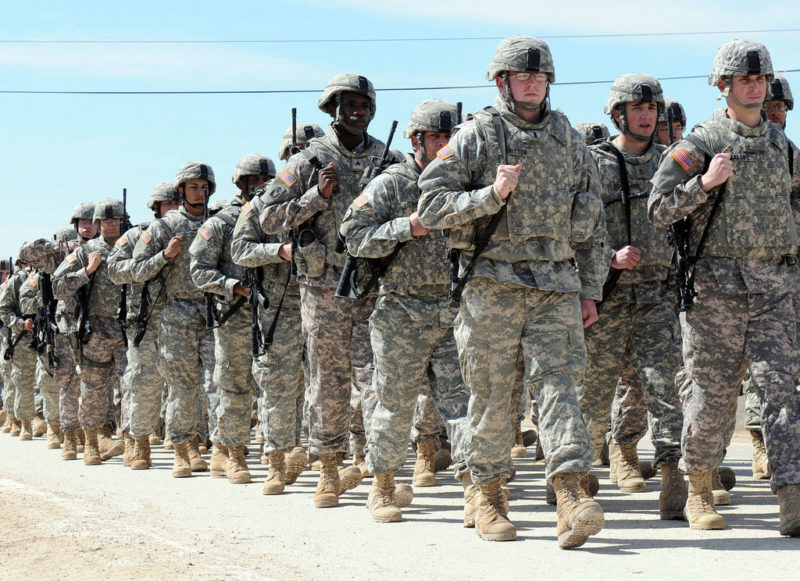He promised to take the handcuffs off the generals, at least when it comes to the so-called “war on terror.” Now, President Donald Trump seems to be making good on this commitment. Earlier this month, the Trump administration deployed hundreds of soldiers from the 11th Marine Expeditionary Unit to support rebels in Syria. This week, the Army announced it will deploy units from Ft. Bliss in El Paso to conduct actions in both Iraq and Afghanistan.
Now, in what seems to be a move to open up a second theater in this conflict, the Trump administration says the U.S. military will operate under war-time engagement rules for actions in Somalia.
Dr. William Inboden, executive director of the Clements Center for National Security at the University of Texas at Austin says these developments seem dramatic, but that they are not actually a significant departure from what’s happened in the past.
“There’s less here than meets the eye,” Inboden says. “Essentially, President Obama did not talk a lot about the use of force in the conflict with jihadist terrorism, but in a number of these theatres, he was prosecuting it pretty aggressively and the Trump administration is really continuing a lot of that.”
Though the Trump administration is making changes, Inboden says they’re mostly tactical shifts: slightly loosened rules of engagement and a little bit more autonomy for commanders in theatre out front.
When it comes to U.S. Secretary of State Rex Tillerson’s announcement that taking Syrian President Bashar Al-Assad out of the picture is no longer the U.S. priority, Inboden said again that this is also a continuation of the Obama administration’s approach in recent years.
“[They’re] Essentially aligning the rhetoric with what had been the de facto US policy out of the Obama administration,” Inboden says. “The Obama administration stopped showing any interest in removing Assad from power several years ago.”
Though Inboden says he disagrees with the decision to stop going after Assad, he says the Trump administration’s reason for doing so may be to bring an end to U.S. involvement in the region.
“They’re trying to perhaps signal to Assad that he’s safe for now and this may open the space for the grand bargain they’re hoping to cut with Russia to end the conflict,” Inboden says.
Although this may be the Trump administration’s intention, Inboden says he doesn’t see any light at the end of the tunnel when it comes to ending U.S. involvement in the region.
“The best analogy is to the cold war, which was a 40-45 year struggle against an ideologically motivated enemy that had a global dimension and then had some kinetic hot-war manifestations to it, but was at the same time a diplomatic, political intelligence struggle,” Inboden says. “This conflict’s going to be with us for a long time.”
Written by Morgan O’Hanlon.

















